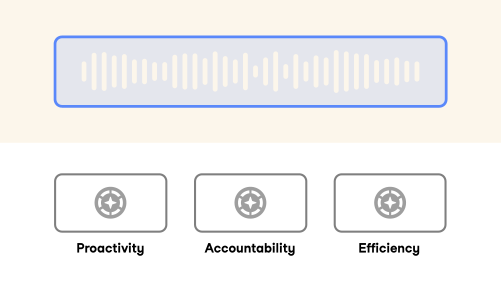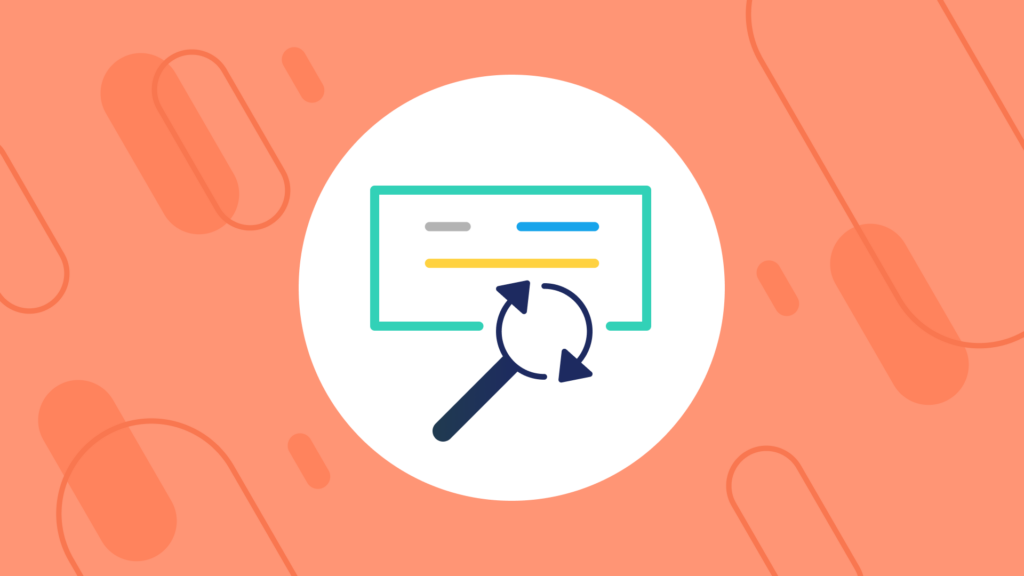Evaluate and score customer interactions at scale with AI healthcare companies
Audit interactions using personalized industry-specific criteria and evaluations with machine learning and AI designed for healthcare.
Learn more about Autoscoring
Break down the best practices for leveraging AI in your organization by following the impact of four use cases. Download AI Best Practices →

Understanding patient confusion to resolve pain points
A biopharmaceutical company wanted to understand why patients were calling and if agents were equipped to respond to question around reimbursement requirements. Authenticx AI insights helped decrease negative sentiment by about 50%.
Read the Customer StoryAI Healthcare Companies
Artificial intelligence (AI) is revolutionizing a wide range of industries, including healthcare. AI healthcare companies leverage advanced technologies to transform the delivery of healthcare services and, most importantly, improve patient outcomes. Their work is shaping the present and future of medicine in unprecedented ways and has had a profound influence on areas ranging from biotech to oncology.
For example, the top AI biotech companies are harnessing AI to accelerate drug discovery and personalized medicine. By analyzing vast amounts of genomic and clinical data, this technology is helping scientists to understand complex disease patterns and develop more effective treatments.
AI in healthcare companies is also being used to enhance medical imaging. Medical imaging AI companies use special algorithms and deep learning techniques to interpret radiological images such as MRIs and CT scans. Artificial intelligence augments the capabilities of radiologists, helping them identify subtle abnormalities that would otherwise be overlooked.
AI oncology companies are also making strides in healthcare. Many are currently using AI to help detect cancer at an early stage, predict treatment response, and monitor disease progression. The ability of AI to sift through massive datasets and learn from patterns is proving indispensable in the fight against cancer. This is largely due to the fact that it enables a more precise and personalized approach to care, which is instrumental in boosting survival rates and improving patients’ quality of life.
Likewise, AI pharma companies are utilizing AI to streamline the drug development process. From target identification to clinical trials, this technology has proved to be invaluable in expediting drug creation and administration. Pharmaceutical companies are also using AI to optimize drug manufacturing and supply chain logistics, which has resulted in greater efficiency and cost savings.
Ultimately, the impact of artificial intelligence in healthcare can be broadly summarized in the following three areas:
- Personalized Medicine: AI is facilitating a shift from a one-size-fits-all approach to a more personalized treatment plan, accounting for patients’ genetic makeup, lifestyle, and environment.
- Predictive Analytics: In addition to promoting personalized treatment, AI equips healthcare professionals with the tools they need to predict patient outcomes based on vast amounts of data.
- Telemedicine: AI allows for remote patient monitoring and virtual consultations, providing a convenient and cost-effective solution for patients and healthcare providers alike.
Authenticx’s customer experience software is unique in that it’s specifically built for healthcare. It allows users to analyze the customer voice from multiple angles and gain a comprehensive understanding of what’s needed to better serve their patient population.
AI For Medical Diagnosis
The role of AI in healthcare cannot be overstated. Major advances are being made on a near-daily basis, many of which have the potential to drastically improve the accuracy and efficiency of diagnosis and treatment. AI in biotechnology, for instance, is allowing professionals to get an upper hand on genetic diseases, significantly reducing the amount of time it takes to diagnose patients. This puts them on the road to faster treatment and recovery.
Artificial intelligence is also changing the way cancer is diagnosed. AI cancer detection methods utilize machine learning algorithms to analyze medical images and identify malignant growths. These models can learn from thousands of images and recognize patterns and nuances that may be challenging for the human eye to detect. Needless to say, AI for medical diagnosis is likely to improve patient outcomes in a plethora of ways.
In the broader field of medical imaging, AI is showing similarly remarkable potential. AI medical imaging tools are capable of analyzing a broad range of scans. They can identify signs of conditions such as stroke, lung diseases, and heart conditions more quickly and accurately than traditional methods. This can save lives by prompting faster treatment.
Common applications of artificial intelligence in healthcare also extend to areas such as pathology, dermatology, and ophthalmology. For instance, in pathology, AI can analyze tissue samples to detect anomalies; in dermatology, it looks at images of skin lesions to detect skin cancer. AI has been successfully used in ophthalmology to detect conditions such as diabetic retinopathy and age-related macular degeneration.
AI in Healthcare Examples
The applications of artificial intelligence are extensive and become more numerous by the day. The top healthcare AI applications demonstrate how AI is shaping the future of medical care:
- Clinical Decision Support Systems (CDSS): Powered by AI, CDSS can offer diagnostic suggestions, recommend treatment plans, and alert healthcare providers about potential issues, thereby aiding in clinical decision-making.
- Radiology and Medical Imaging: AI is being used to augment radiologists’ capabilities by interpreting imaging results more accurately. AI products in healthcare, such as Zebra Medical Vision and Aidoc, use machine learning algorithms to detect life-threatening conditions early.
- Drug Discovery and Development: Public AI biotech companies use AI to aid in drug discovery, development, and trialing. This technology can speed up the process and get helpful treatments into the hands of patients much sooner.
- Genomics: AI is being used to analyze complex genomic data, which can help identify genetic predispositions to certain diseases. Deep Genomics is an organization that’s using machine learning to understand the implications of genetic variations and pave the way for personalized medicine.
In addition to medical imaging and diagnosing, AI is being leveraged to improve nursing practices. Here are a few examples of artificial intelligence in nursing:
- Robotic Process Automation (RPA): RPA can automate repetitive tasks, such as data entry, scheduling, and reporting, freeing up more time for nurses to focus on patient care.
- Patient Monitoring: AI-powered patient monitoring systems analyze patient data in real-time and alert nurses to any significant changes in a patient’s condition. This can lead to quicker response times.
- Virtual Nursing Assistants: AI-powered virtual nursing assistants, such as Care Angel and Sensly, can interact with patients, reminding them to take their medications, assisting with their healthcare queries, and monitoring their health conditions.
- AI in Nursing Education: AI is being used in nursing education to create adaptive learning environments, which tailor the educational content to the learner’s needs, enhancing learning outcomes.
Though the future of AI looks promising—as demonstrated by these AI in healthcare examples—it’s important to remember that artificial intelligence is merely an assistive tool. It should be guided by a strong ethical framework to address potential challenges related to data privacy, security, and algorithmic bias.
How It Works
Gain a deeper level understanding of contact center conversations with AI solutions.
See a PreviewAggregate
Pull customer interaction data across vendors, products, and services into a single source of truth.
Analyze
Collect quantitative and qualitative information to understand patterns and uncover opportunities.

Activate
Confidently take action with insights that close the gap between your organization and your customers.
Benefits of AI in Healthcare
One of the primary benefits of AI in healthcare is improved accuracy in diagnosis. AI algorithms, trained on large amounts of data, can identify patterns and anomalies faster and with greater precision than traditional methods. By leveraging AI, healthcare professionals can diagnose conditions more rapidly, which often results in better patient outcomes.
AI also increases efficiency. It automates repetitive tasks that would otherwise bog down human staff. By abandoning manual work, providers can focus more of their attention on the patients in front of them. The use of a healthcare AI platform can also help with managing health records, scheduling appointments, and tracking patient progress.
Artificial intelligence in healthcare articles documents the various ways in which AI is revolutionizing the medical field. They cover a range of topics from artificial intelligence for medical students to improved diagnostic techniques. By reading up on the latest literature, healthcare professionals and companies can learn more about the benefits of artificial intelligence and how it can be applied to meet diverse needs.
AI in Healthcare Statistics
The impact of AI in healthcare has been tremendous. It’s made especially apparent when looking at AI in healthcare statistics. For example, a biopharmaceutical company that partnered with Authenticx managed to improve the patient experience by reducing brand detractors by nearly 50% and agent-caused confusion by 10%. This case study demonstrates the importance of leveraging AI-powered tools to better meet the needs of patients.
AI in healthcare projects, which range from advanced medical imaging to drug discovery, has shown the potential to speed up processes, improve accuracy, and enable personalization of healthcare. Additionally, the rise of AI healthcare startups has been a driving force in bringing innovation to the sector. These startups are tackling several challenges, including patient monitoring and health record management, bringing fresh perspectives to the table.
Education is another realm wherein AI is making its mark. The best AI in healthcare courses is being integrated into medical training, providing students with a comprehensive understanding of this pivotal technology. Artificial intelligence courses for doctors and students offer insights into how AI can be used in medical practice and research, preparing the next generation of healthcare providers for a technology-driven future.
Whether looking for the best AI for medical students or the best AI-driven tools for seasoned professionals, it’s important that potential users thoroughly compare their options. Some tools have a proven track record of success, while others are still in their trial phase. Consider your specific organizational requirements, as well as the needs of your patients, when determining what types of AI to integrate into your practice.
AI continues to improve each day, and the statistics go to show how this technology, when used appropriately, can enhance efficiency and serve patients more effectively. It is likely to shape the near and long-term future of healthcare, leading to better outcomes for everyone involved.